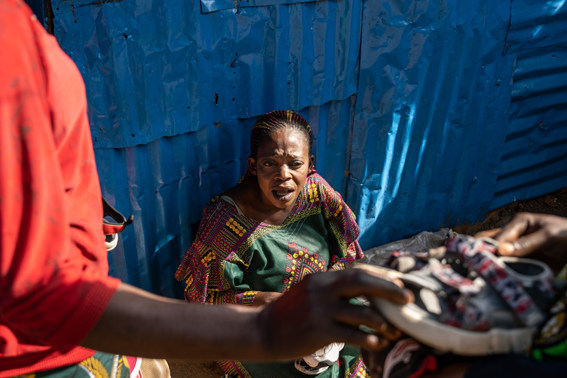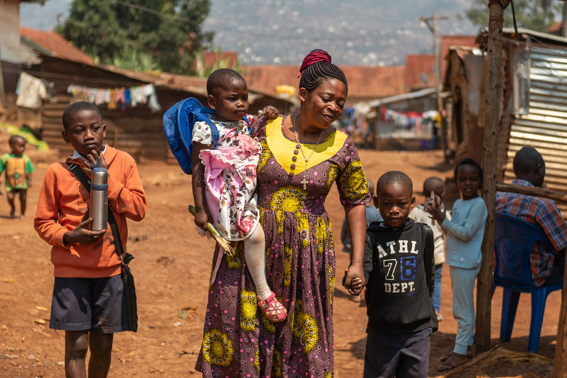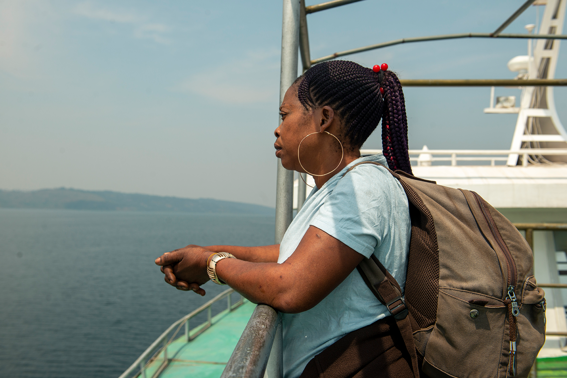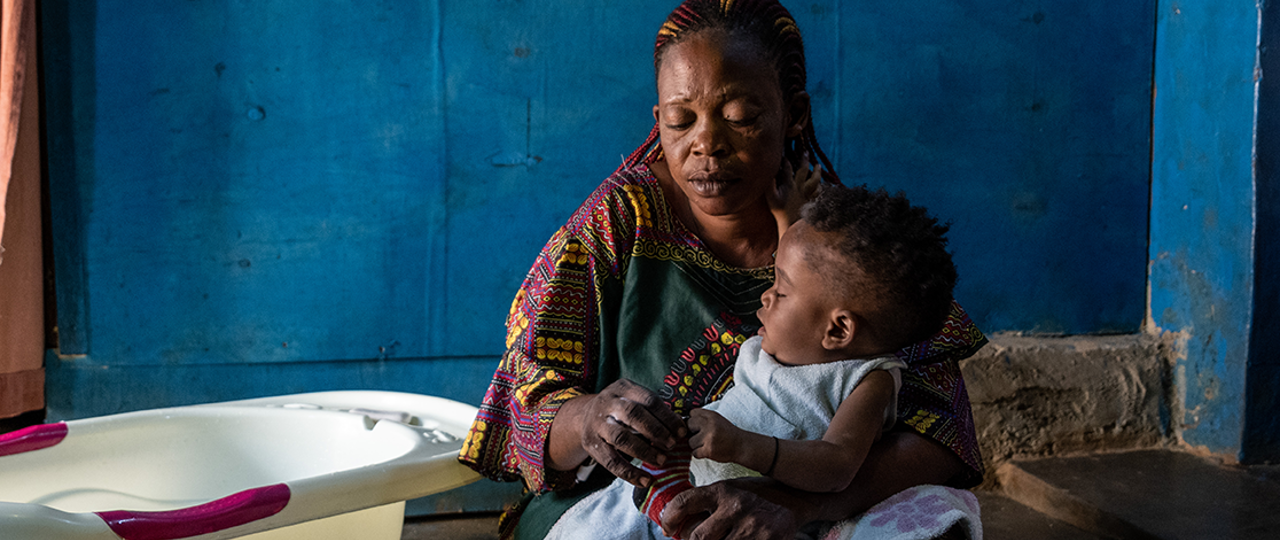The Power to Survive
At age 14, Rosalie did not have the financial security to afford school. Instead, she was forced to become a child soldier. She had no choice but to survive.
In the Democratic Republic of Congo, this is all too common for women like Rosalie, who come face to face with adversity and have their agency stripped away. There is only one option left, to survive.
“I was in the battlefield with my baby on my back.” - Rosalie

Rosalie stands holding her baby on her back in the Democratic Republic of the Congo. Credit: Arlette Bashizi/CAFOD
Living with a lack of choice
In the Democratic Republic of Congo and countries around the world, women like Rosalie are coming face-to-face with issues they don't always have agency over:

Rosalie looks up at two people passing shoes in the Democratic Republic of the Congo. Credit: Arlette Bashizi/CAFOD
Poverty
DRC is one of the 5 poorest countries in the world.
Only 6.4% of women work wage earning jobs compared to 23.9% of men. In 2022, more than half of Congolese people lived on less than $2.15 a day. - WorldBank
Rosalie had a tough childhood. Her father passed away when she was young and her mother struggled to earn enough income to pay for her school fees.
“I am living in a poor community where the members survive instead of living." - Rosalie

Rosalie walking with three of her children in the Democratic Republic of Congo. Credit: Arlette Bashizi/CAFOD
Education
Many children don't have the choice to go to school.
Barriers to education include financial insecurity, gender limitations, and the threat of war.
Women and girls particularly have less access to education than men and boys, as well as higher rates of illiteracy.
Without the financial means to afford schooling, Rosalie was forced to drop out.
"My mother could not pay school fees. I could not feed or clothe myself. The army was the only option.” - Rosalie

Rosalie looks out from the deck of a passenger boat heading back to Bukavu after buying shoes from a market in Goma, eastern Democratic Republic of Congo. Credit: Arlette Bashizi/CAFOD
Conflict
Conflict in the DRC has been ongoing since 1996.
Violence and conflict continue to have a devastating impact on millions of people in the DRC. Poverty and instability mean a staggering number of children are violated of their rights and forced to be used as child soldiers. Their childhood is taken away and replaced with experiences of insidious violence.
When Rosalie was 14-years-old, she was forced to become a child soldier.
“In the army, I lived in extreme suffering.” - Rosalie
Only 16.8%
of women in DRC have completed secondary school — about half of the rate of completion for men. Source: Worldbank.
Up to 52%
of women in DRC are survivors of domestic violence and 39% of Congolese women report having been threatened or injured. Source: Un Women.
1 in 3 women
have experienced gender-based violence in their lifetime globally. Source: Worldbank.

Rosalie sits on the floor holding her baby in the Democratic Republic of the Congo. Credit: Arlette Bashizi/CAFOD
Rosalie's Story
Rosalie’s father passed when she was two years old. This loss meant her mother had little financial security and no means to afford schooling.
Instead, Rosalie had no choice but to trade schoolbooks for a gun, becoming a child soldier at 14. The insidious gender-based violence and conflict soon followed.












